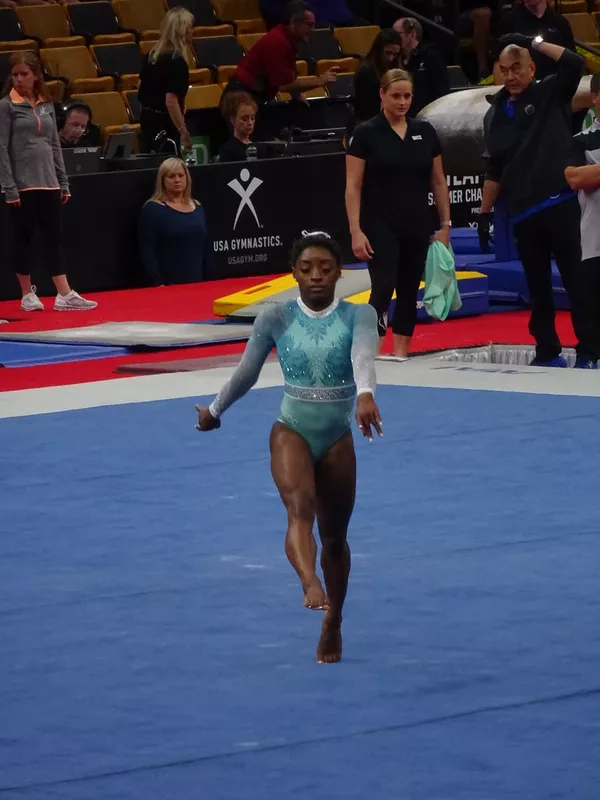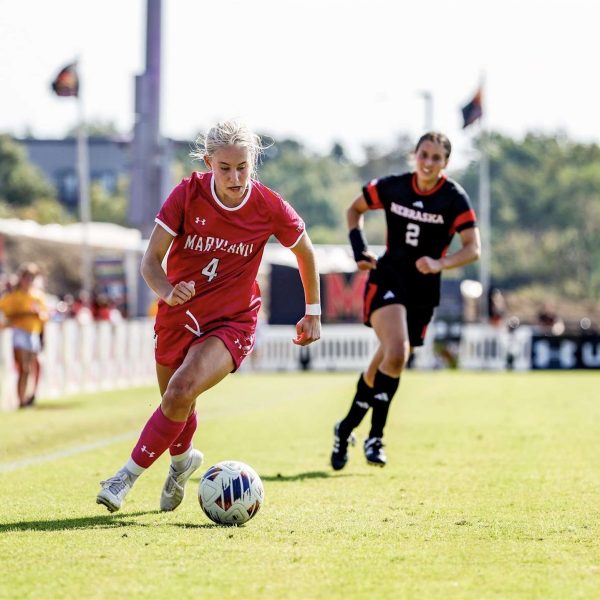Simone Biles withdraws from Tokyo Olympics, raises questions about athlete mental health resources
Photo used with permission from Google Commons
Simone Biles warms up for her floor routine when competing for Team USA.
At the Tokyo 2021 Olympic Games, Simone Biles withdrew from the team final after getting
lost in the air while vaulting. This came as a shock to her teammates and the world watching.
She was expected to win five gold medals that summer but left Tokyo with a silver for the team competition and bronze for the balance beam final. Biles credited her reason for withdrawing from most events that summer to be her mental health. She said that she was not in the right headspace to compete, and did not want to jeopardize her team’s chances of winning a medal.
Critics said that Biles’ decision to withdraw was selfish and she failed to represent her country. Her withdrawal cost the U.S. medals, and, according to the critics, mental health wasn’t a good enough reason to draw out.
Biles’ withdrawal shows how much mental health issues can impact performance. “As a former gymnast, I have always been inspired by Simone Biles and her success. Her choice to leave the competition shows how much mental capability is needed to succeed in sports. If you don’t think or believe you can do a skill, you won’t be able to do it no matter how much physical effort you put in,” sophomore Daksh Badri said.
Athletes, whether they are in high school or competing in the Olympics, have pressure to
perform. Between the anxiety of games, training, injuries, teammate and coach relationships and balancing other activities, mental health problems are bound to arise. “I think there does exist a pressure to perform and sometimes when you aren’t performing well or feeling discouraged, it takes a mental toll on you. People might have expectations for you that you want to live up to, which can be hard,” senior and co-captain of the girls’ tennis team Anusha Iyer said.
To help athletes overcome this pressure, there should be more mental health resources available to athletes at every level. “If student athletes are feeling pressured or overwhelmed, there could be a school counseling or psychological services created directed towards athletes specifically,” Iyer said.
Other students feel like teachers have to be more understanding with athletes while their sports are in season. “I feel the commitment of doing school and volleyball is a lot. I would hope teachers would be more lenient with student athletes. Volleyball is a spring sport, which is also AP season, which makes it really difficult to keep up with everything,” junior and co-captain of the boys’ volleyball team Jackson Beaver said.
Despite the claims that Biles failed to represent her country by dropping out of the Olympics, Biles was awarded the Presidential Medal of Freedom by President Joe Biden for her advocacy of mental health resources for athletes. It’s important for people to start viewing athletes as humans too, who make mistakes and have bad days. Developing mental health resources for athletes will improve their performance, and possibly elongate their careers.
Your donation will support the student journalists of Thomas S. Wootton High School. Your contribution will allow us to purchase equipment and cover our annual website hosting costs.
Naeha is a 2024 graduate.








Dhruv • Jan 11, 2023 at 2:25 pm
such a well written article